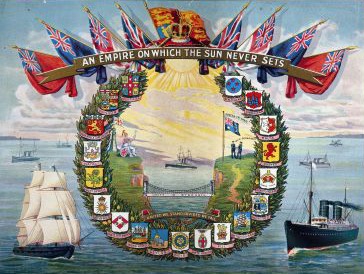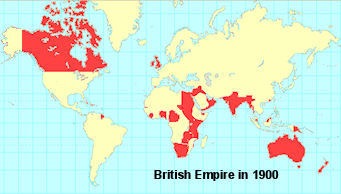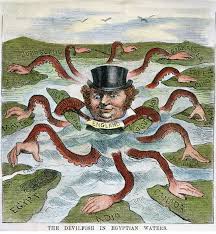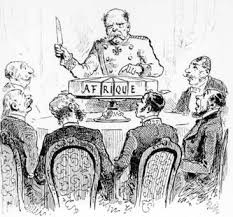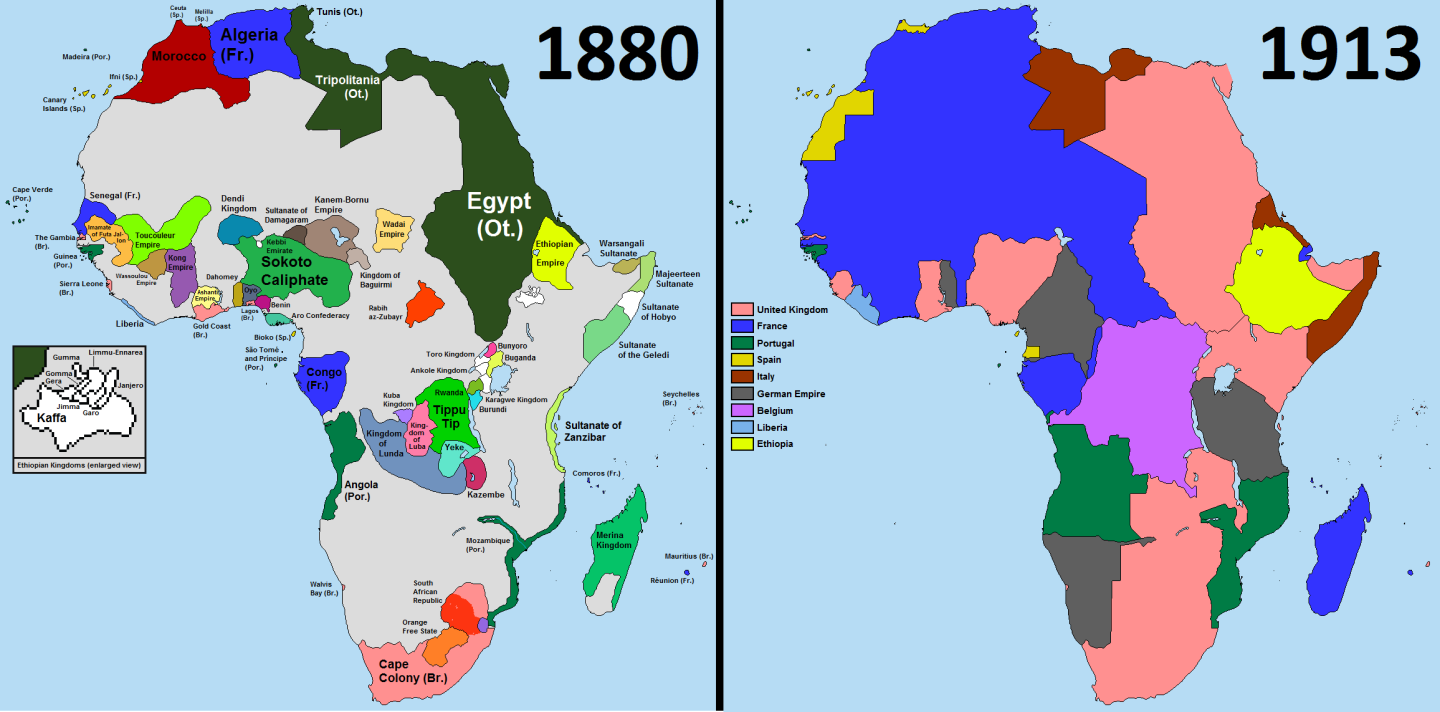Power and Wealth
The Age of Imperialism (1800-1914) was a time frame in which Europe became the most powerful region in the world. By 1914, imperial powers controlled 70% of the land on earth. Countries such as France, Germany, Belgium, and the Netherlands amassed land across continents. Great Britian was the most significant of the European imperial powers. Because of industrialization and imperialism Great Britain became the most powerful nation in the world. At no point in history has there been an empire as vast as the British Empire during the 19th and early 20th century. Great Britain's naval and merchant fleets were the envy of the world.
The Industrial Revolution made sure that Europe was stronger and more wealthy than the unindustrialized world. The Age of Imperialism widened the gap between the developed nations of Europe and all the underdeveloped regions, as imperial powers exploited the lands for their own economic and political gain.

